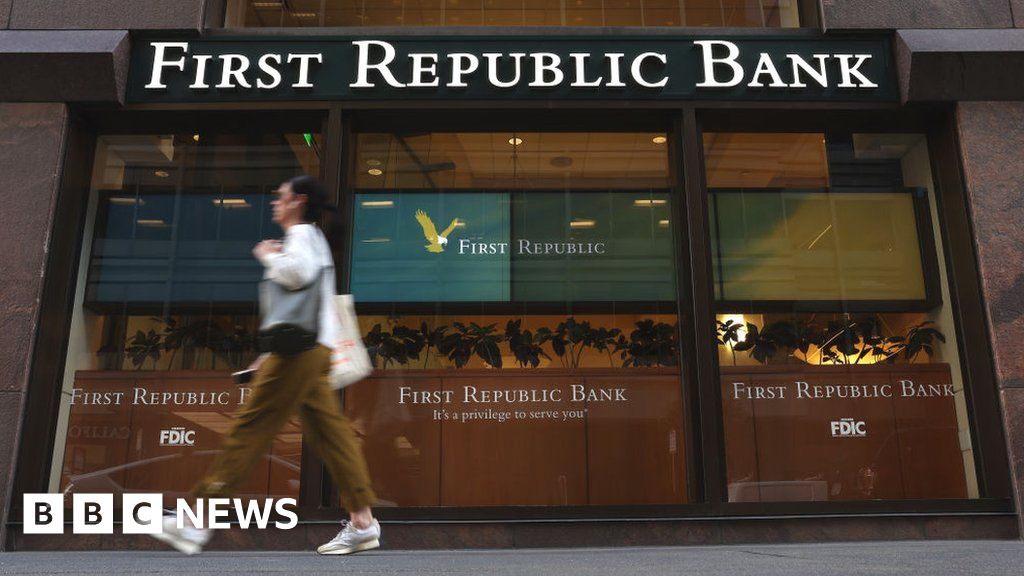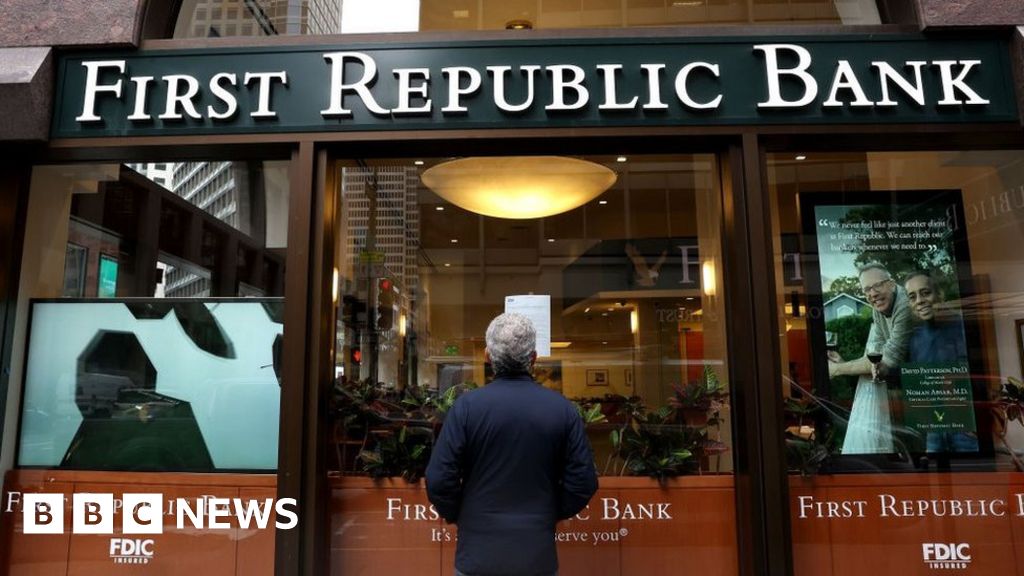- Joined
- Apr 3, 2023
- Messages
- 1,092
- Reaction score
- 369
- Points
- 352
- Ballots
- 🗳️0.000000
- DB Transfer
- 🔄0.000000
JP Morgan Chase has taken over the troubled US bank First Republic in a deal brokered by regulators.

First Republic: JP Morgan snaps up major US bank
First Republic was seized by regulators, making it the third major US bank to fail in recent months.
www.bbc.co.uk
The Federal Deposit Insurance Corporation (FDIC) confirmed in a statement that First Republic Bank had collapsed on Monday.
Investment banking giant JP Morgan will take on all of the deposits and the majority of First Republic's assets.
First Republic is the third US bank to fail in recent months, which has prompted fears of wider banking crisis.
The San Francisco-based lender's shares fell by more than 75% last week after it admitted that customers had withdrawn $100bn (£79.6bn) of deposits in March.
It follows on from the collapse of Silicon Valley Bank (SVB) in March and the demise of another US lender, Signature Bank.
The failed bank's 84 offices in eight states will reopen as branches of JPMorgan Chase Bank from Monday after regulators seized control and immediately sold to the Wall Street institution.
Executives said they expected the acquisition would "modestly benefit" JP Morgan. They said they hoped they would be able to keep the First Republic's customers, boosting their wealth management business.
A deposit flight from some lenders in recent months has forced the Federal Reserve, the US central bank, to step in with emergency measures to stabilise financial markets.
When Silicon Valley Bank and Signature collapsed, the FDIC said it would guarantee all deposits to prevent a rush of people trying to get their money out, which is known as a run on a bank.

